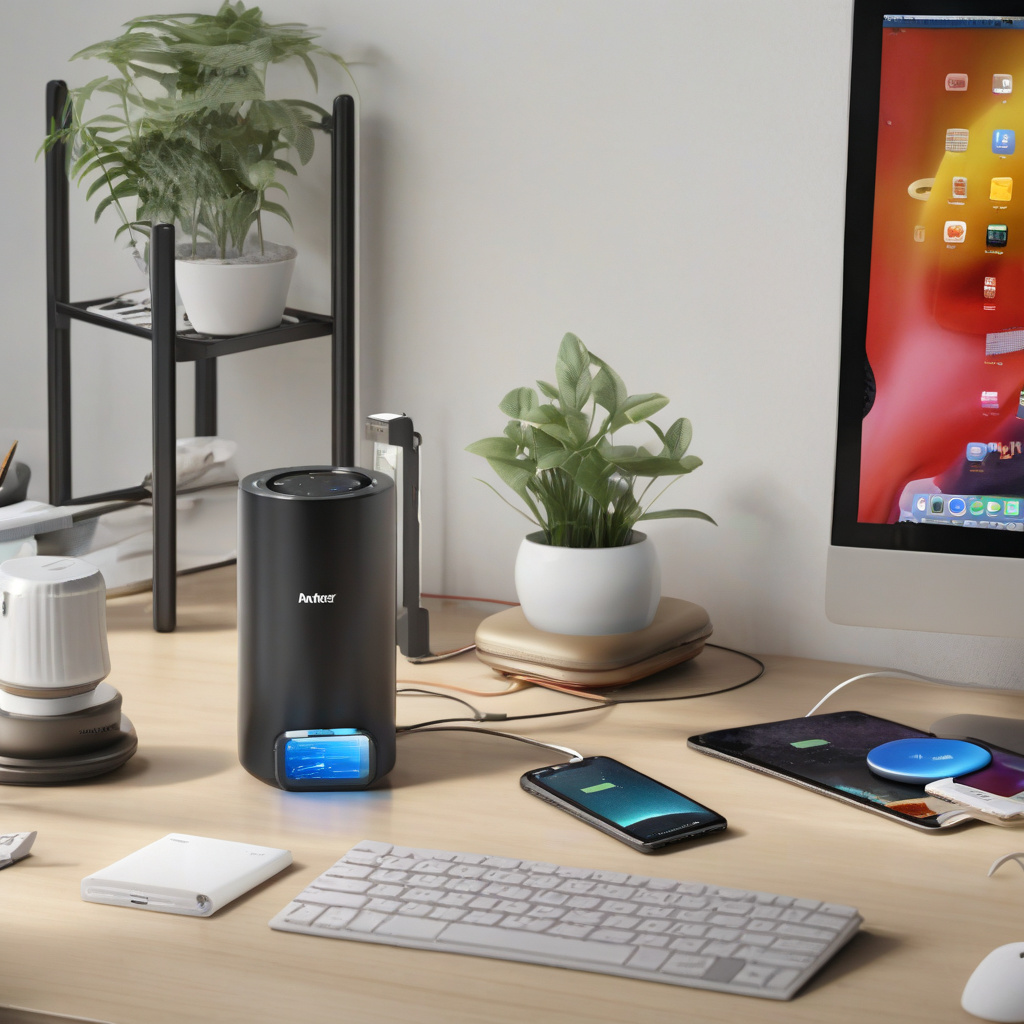Chinese Electronics Company Anker Starts Raising Prices on Amazon
In the dynamic world of retail, few developments have a more immediate impact on consumer purchasing behavior than price changes. Recently, Anker, a prominent Chinese electronics company known for its chargers and power banks, has made headlines as it begins to raise prices on its products listed on Amazon. This shift comes in response to escalating import tariffs between the United States and China, which have reached unprecedented levels.
Currently, U.S. import tariffs on Chinese goods stand at a staggering 145%. This steep increase is a result of ongoing tensions in the trade relationship between the two largest economies in the world. In retaliation, China announced on Friday that it would raise its tariff on U.S. goods to 125%. Such measures are part of a larger trade war that shows no signs of abating, putting pressure on companies that rely on cross-border commerce.
The implications of these tariffs are far-reaching, especially for Chinese companies that have established significant footholds in the U.S. market. Anker, which has built a reputation for providing high-quality and affordable electronics, is now grappling with the realities of these tariffs. The company’s decision to raise prices on Amazon is not merely a reaction to increased costs but a strategic response to ensure sustainability in a challenging economic landscape.
According to warnings from China’s largest cross-border e-commerce association, many Chinese firms selling on platforms like Amazon are reconsidering their pricing strategies. The association has indicated that a significant number of these companies may be forced to either increase prices for U.S. consumers or exit the market entirely. This raises important questions about the future of Chinese brands in the U.S. and the potential for reduced competition in the electronics sector.
Anker’s price increases reflect a broader trend among Chinese manufacturers who are facing similar challenges. As companies are forced to absorb higher costs due to tariffs, they must find ways to maintain profit margins while remaining competitive in a market that is sensitive to price fluctuations. This balancing act is crucial, as consumers often have a plethora of options when it comes to electronics—especially in a time when online shopping is at an all-time high.
The electronics market is particularly competitive, with numerous brands vying for consumer attention. Anker has differentiated itself through quality and innovative designs, but if prices continue to rise, it risks losing market share to cheaper alternatives. This scenario is particularly concerning for budget-conscious consumers who are always on the lookout for the best deals.
Moreover, the impact of these tariffs extends beyond just pricing. Supply chain disruptions are becoming more common as manufacturers navigate the complexities of international trade. Companies like Anker rely on streamlined logistics to deliver products efficiently. Any disruptions in shipping routes or increased costs for raw materials can further strain operations, forcing companies to adjust strategies more frequently.
It is also essential to consider the consumer response to these price hikes. Many shoppers are increasingly aware of the implications of tariffs and may be less forgiving when it comes to price increases. Anker’s decision to raise prices may lead to customer dissatisfaction, particularly if consumers feel that they are being unfairly burdened by the consequences of international trade disputes.
As Anker and other Chinese electronics firms prepare for a potentially volatile market, the question remains: how will this affect their long-term strategies? Some companies may opt to invest in local manufacturing to sidestep tariffs, while others might explore partnerships or alternate supply chains. The ability to adapt quickly to changing conditions will be crucial for survival in this increasingly competitive landscape.
In conclusion, the rising prices of Anker products on Amazon signal a significant shift in the retail landscape, driven by the complexities of international trade and tariffs. As the trade war between the U.S. and China intensifies, companies must navigate a challenging environment that requires agility and foresight. For consumers, the changes may mean higher prices for popular electronics, prompting them to weigh their options carefully. The future of cross-border e-commerce remains uncertain, but one thing is clear: the effects of these tariffs will resonate throughout the industry for years to come.
retail, finance, business, Anker, electronics
